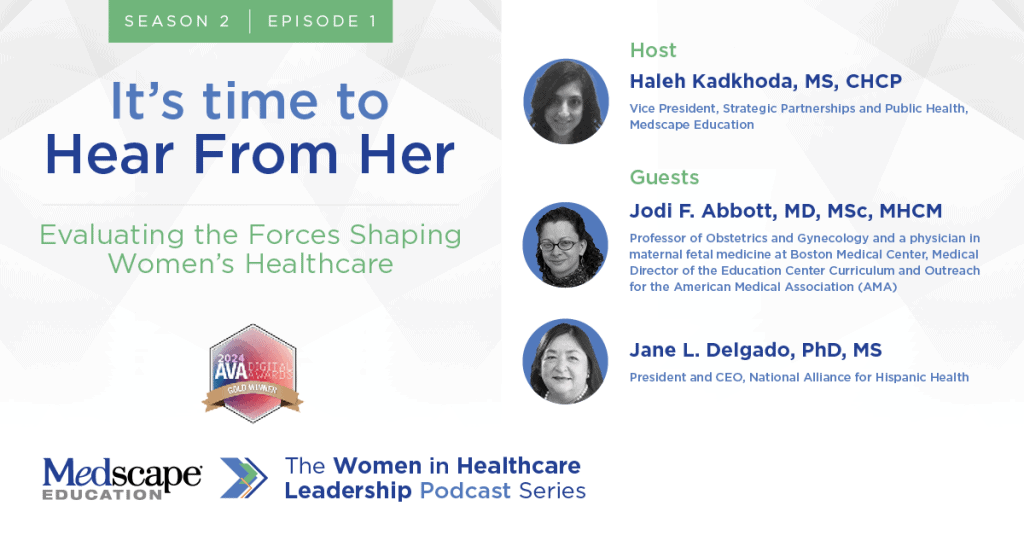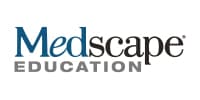Evaluating the Forces Shaping Women’s Healthcare
March 6, 2024 | Leadership, Women in healthcare
Gaps in women’s healthcare go beyond access and cost. Do clinicians have the tools they need to understand women’s health?

If there are any lingering doubts about how today’s healthcare system fails many women, a 2022 study from the Kaiser Family Foundation will set the record straight. Their report revealed that close to 20 percent of all women in the U.S. ages 18 and older considered their health fair or poor. Out of a population of 168 million women, that is a shockingly large number of people who feel less than well.
Drilling down by race and ethnicity, the numbers break out to 31% of American Indian and Alaskan Native women, 25% of Hispanic women, 23% of black women, 16% of white women, and 10% of Asian Native Hawaiian and other Pacific Islander women. The same study found that 10% of all women 18 and older did not see a doctor due to cost.
And here’s something else to consider, says Jane Delgado, clinical psychologist and President and CEO of the National Alliance for Hispanic Health. Even if you can afford it, if you have access to health insurance, “once you get through the door, does the person you see hear you? Does that person have the tools to understand women’s health? Are you getting the care you need, and does your healthcare provider have the tools and information they need?”
Not to mention the additional barriers of ethnicity and age that women often face, says Jodi Abbott, who has dual roles as Professor of Obstetrics and Gynecology and a physician in maternal fetal medicine at Boston Medical Center, and Medical Director of the Education Center, Curriculum and Outreach for the American Medical Association (AMA). Women’s complaints “are much less likely to be listened to, and they end up being underdiagnosed and undertreated for most conditions.” While you’re seeing a physician to try to feel better, “they are there to cross a disease off a list. There’s a mismatch between the hopes and expectations of many people who enter the system and how most physicians are trained. Our healthcare system is geared toward disease management, rather than addressing the elements that help keep people healthy.”
Abbott says she’s “privileged” to work at Boston Medical, which is an ACO, or accountable care organization. “The difference between that system and traditional insurance-based or fee-for-service systems is that our organization is set up to have a certain amount of money every year to keep people healthy as opposed to receiving money for how much time they spend in the hospital because of certain diagnoses. When we switched to that, it really opened the door to physicians and health care providers with the desire to widen their team—for example, to include non-physician team members—and to be able to focus on initiatives that can improve health, and not just those that identify complications.”
One example of this, says Abbott, has been a large investment in the community and in “nontraditional” mechanisms of health care, such as doulas—birth attendants who are not physicians, not nurses, “who represent the women in the communities that our patients come from. They are multilingual, and can have a personal connection, sort of a mother or auntie figure, but they also know how a hospital works and can guide people who are attending for the first time.
“There’s an important investment that needs to be made [in programs] that help keep people healthy,” Abbott says.
We need to hit our health enterprise at many different levels to really effect change, says Delgado. “From how the system includes women in every place from researcher to clinician to participant, to how women approach that system. And we need to talk to women about their total health and teach them about how to take care of themselves, not just when they’re pregnant but throughout their whole lives.”
Listen now to season two, episode 1 on Medscape, Spotify or Apple.
For more information please contact Jelena Spyropoulos (Global) or Piyali Chatterjee-Shin (US).
Hosted by Haleh Kadkhoda, MS, CHCP, Vice President, Strategic Partnerships and Public Health at Medscape Education
About Medscape Education Medscape Education (medscape.org) is the leading destination for continuous professional development, consisting of more than 30 specialty-focused destinations offering thousands of free accredited CME and CE courses for physicians, nurses, and other healthcare professionals.
This content was provided by Medscape Education Global
Company Details
Latest Content from Medscape Education Global
Message from the Women in Medicine™ Summit: “Be the Change You Want to See”
What are some of the biggest gaps that women still face in healthcare today?“So many I could talk for hours!” says Shikha Jain, MD, FACP, President, CEO, Founder Women in...
Changing What’s Possible for Women in Healthcare
Career choices are driven by many factors. In medicine, doctors are often drawn to a particular specialty following a personal experience.That’s the case with both of the renowned speakers in...
Honoring Educational Partners at ACG
The recent ACG conference was an opportunity for members of the Medscape team to shine a light on their educational partners and honor them for their exceptional work.On October 21,...
The Power of Disease Awareness in Infectious Disease Education at IDWeek 2023
Medscape Education had one of its biggest conferences of the year with IDWeek 2023, hosting six educational symposia and presenting five scientific posters highlighting the outcomes of recent infectious disease...
Hear From Her: Announcing The Women in Healthcare Leadership Series Podcast
On the 8th November 2023, Medscape will launch the first episode of their new podcast: the Women in Healthcare Leadership Podcast Series.This insightful series was designed to elevate and empower...
Medscape Education Invites Listeners to ‘Hear From Her’ With New Women in Healthcare Leadership Podcast Series
Medscape Education has launched their new podcast: the Women in Healthcare Leadership Podcast Series. The series, hosted by Medscape Education employees, features women in leadership roles across industry as well...
Sharing Outcomes in MS at ECTRIMS 2023
During ECTRIMS 2023 congress, the Medscape Education Global team will be on site to present a poster of their educational outcomes.The poster, Virtual Patient Simulation Improves Neurologists’ Performance in Making...
Shining a Light on Current Topics in Oncology
The Medscape Oncology team will be on the road again, this time in Madrid, Spain for ESMO 2023. This year, the team will be sharing education with a deep impact...
Disseminating Outcomes and Impact in Berlin
The Medscape Education Global team is looking forward to a busy time in Berlin at the EADV Congress 2023. During the congress, Medscape will be presenting five posters examining the...





